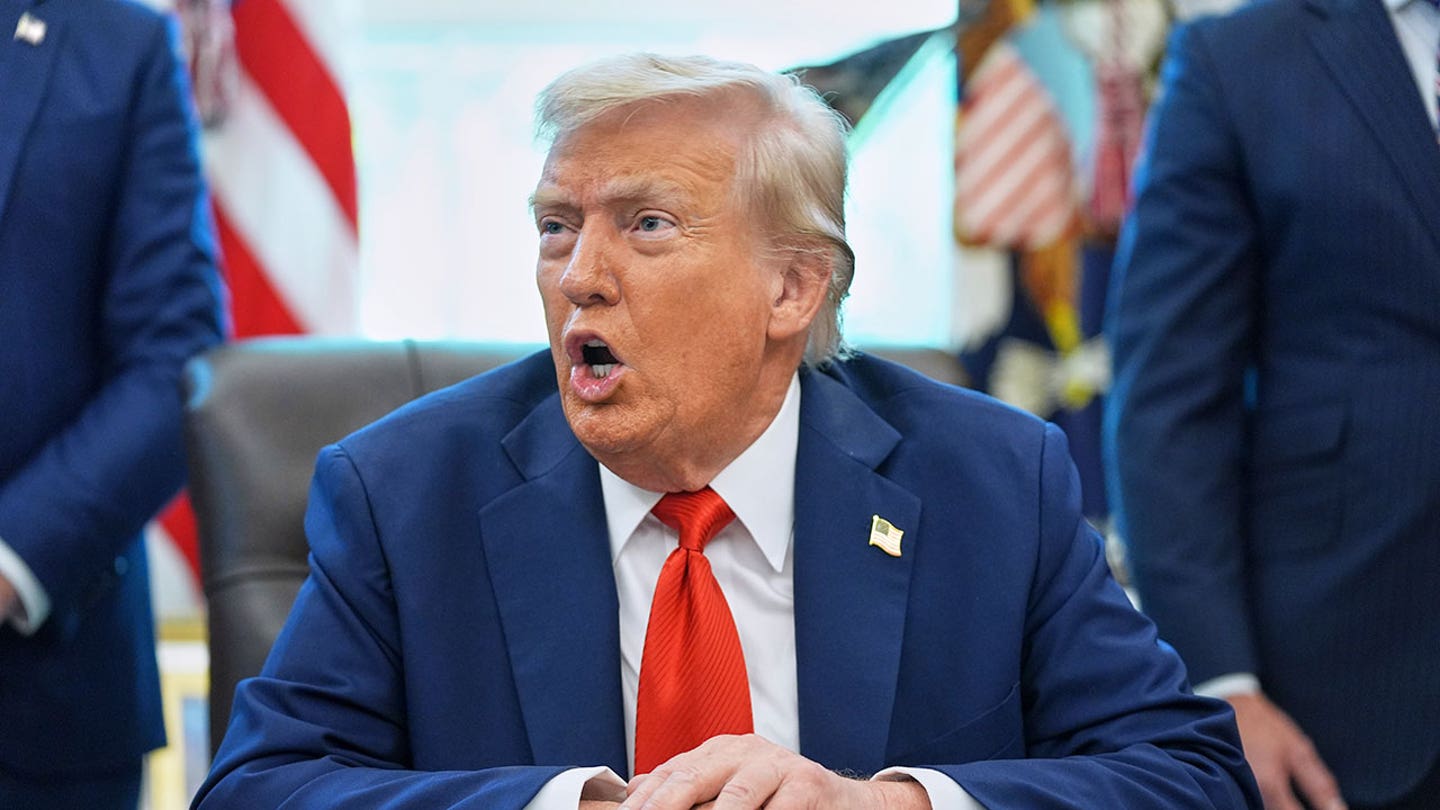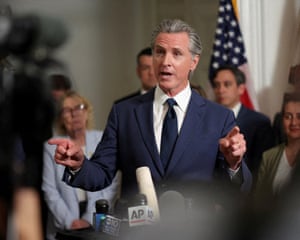
Democrats opposed John Bolton for years — until they sought him as an ally against Trump
Entities mentioned:
- John Bolton: Power, Influence, Professional pride
- Democrats: Political advantage, Justice, Moral outrage
- Donald Trump: Power, Control, Self-preservation
- Joe Biden: Duty, Justice, Competitive spirit
- George W. Bush: Power, Legacy, Security
- Adam Schiff: Justice, Duty, Competitive spirit
Article Assessment:
Credibility Score: 75/100
Bias Rating: 55/100 (Center)
Sentiment Score: 40/100
Authoritarianism Risk: 35/100 (Generally Democratic)
Bias Analysis:
The article presents multiple perspectives and historical context, showing a relatively balanced approach. However, there's a slight lean towards framing Democrats' actions as opportunistic, which could be interpreted as a center-right perspective.
Key metric: Political Polarization Index
As a social scientist, I analyze that this article highlights the complex and shifting nature of political alliances in the United States. The Democrats' evolving stance on John Bolton demonstrates how political motivations can override ideological consistency. This case study in political polarization shows how figures can be vilified or embraced based on their utility in opposing a common adversary, in this case, Donald Trump. The article underscores how the impeachment process and subsequent events have deepened partisan divides, with both sides willing to realign their allegiances for political gain. This flexibility in political positioning, while potentially pragmatic, may contribute to public cynicism about political consistency and principle, potentially eroding trust in democratic institutions.

‘Bold’ general who led US’ ‘Midnight Hammer’ strikes on Iran ends Middle East reign
Entities mentioned:
- Gen. Michael 'Erik' Kurilla: Duty, Professional pride, Determination
- U.S. Central Command (CENTCOM): Security, Control, Influence
- Pete Hegseth: Loyalty, Patriotism, Recognition
- Adm. Brad Cooper: Duty, Ambition, Professional pride
- Iran: Self-preservation, Power, Defiance
Article Assessment:
Credibility Score: 75/100
Bias Rating: 65/100 (Lean Right)
Sentiment Score: 65/100
Authoritarianism Risk: 35/100 (Generally Democratic)
Bias Analysis:
The article leans slightly right, evident in its positive portrayal of military action and leadership. The use of quotes from conservative figures like Pete Hegseth and the emphasis on strike operations indicate a pro-military stance typical of right-leaning media.
Key metric: Military Readiness and Projection of Power
As a social scientist, I analyze that this article highlights the changing of guard in U.S. Central Command, emphasizing the strategic importance of the Middle East in U.S. military operations. The focus on Gen. Kurilla's career and recent operations against Iran and Houthi rebels underscores the ongoing tensions in the region and the U.S.'s readiness to engage in military action. The transition to Adm. Cooper suggests continuity in strategy and approach. This leadership change and the highlighted operations impact U.S. military readiness and power projection by demonstrating operational capabilities and commitment to regional allies, while also potentially escalating tensions with adversaries like Iran.

Bolton unleashes on Trump Ukraine policy days after FBI raid
Entities mentioned:
- John Bolton: Revenge, Self-preservation, Justice
- Donald Trump: Power, Recognition, Legacy
- FBI: Duty, Justice, Security
- Vladimir Putin: Power, Control, Influence
- Pentagon: Security, Control, Professional pride
Article Assessment:
Credibility Score: 65/100
Bias Rating: 55/100 (Center)
Sentiment Score: 30/100
Authoritarianism Risk: 35/100 (Generally Democratic)
Bias Analysis:
The article presents multiple viewpoints, including criticisms of Trump's policies, but relies heavily on Bolton's perspective. While it includes some factual reporting, the emphasis on Bolton's critique slightly tilts the balance, though not significantly enough to be classified as partisan.
Key metric: International Relations and Diplomacy
As a social scientist, I analyze that this article highlights significant tensions in U.S. foreign policy, particularly regarding Ukraine and Russia. Bolton's critique of Trump's approach suggests a lack of coherence and strategy in diplomatic efforts, potentially weakening the U.S. position on the global stage. The reported FBI raid on Bolton's property adds another layer of complexity, indicating potential internal conflicts within the U.S. political establishment. This situation could impact U.S. credibility in international negotiations and alliances, especially concerning Eastern European security dynamics. The discord between different branches of government (White House, Pentagon) on Ukraine policy further underscores the challenges in maintaining a unified and effective foreign policy stance.

Trump opens door to 600,000 Chinese students amid Beijing trade talks
Entities mentioned:
- Donald Trump: Power, Control, Influence
- China: Power, Competitive spirit, Influence
- Marco Rubio: Security, Wariness, Duty
- Xi Jinping: Power, Influence, Control
- Joe Biden: Legacy, Influence, Duty
Article Assessment:
Credibility Score: 70/100
Bias Rating: 55/100 (Center)
Sentiment Score: 60/100
Authoritarianism Risk: 35/100 (Generally Democratic)
Bias Analysis:
The article presents multiple viewpoints and includes direct quotes, suggesting an attempt at balanced reporting. However, there's a slight lean towards framing Trump's decisions positively, particularly in contrast to the previous administration.
Key metric: US-China Economic Relations
As a social scientist, I analyze that this article highlights a significant shift in the Trump administration's approach to Chinese students in the US, potentially signaling a thaw in US-China relations. The decision to allow 600,000 Chinese students into the US appears to be a strategic move in the context of ongoing trade negotiations. This policy shift could have substantial economic implications, as international students contribute significantly to the US economy. However, it also raises questions about national security concerns previously expressed by administration officials like Marco Rubio. The article suggests that Trump is prioritizing economic benefits over security concerns, which could impact future policy decisions regarding China. The mention of tariffs and trade talks indicates that economic considerations are at the forefront of US-China relations, with educational exchanges being used as a potential bargaining chip.

'We're going to bring it home': Trump commerce secretary shares what's next after Intel deal
Entities mentioned:
- Howard Lutnick: Professional pride, Duty, Influence
- Donald Trump: Ambition, Legacy, Power
- Intel: Competitive spirit, Greed, Recognition
- China: Power, Competitive spirit, Security
Article Assessment:
Credibility Score: 55/100
Bias Rating: 65/100 (Lean Right)
Sentiment Score: 70/100
Authoritarianism Risk: 35/100 (Generally Democratic)
Bias Analysis:
The article leans right due to its positive framing of Trump administration policies and its presentation on a typically conservative-leaning program. The language used, such as 'bring it home', appeals to nationalist sentiments often associated with right-wing politics.
Key metric: US Economic Competitiveness
As a social scientist, I analyze that this article suggests a strategic move by the Trump administration to bolster US economic competitiveness, particularly in the tech sector. The deal with Intel, a major US semiconductor company, appears to be part of a broader strategy to strengthen domestic technology production and reduce dependence on foreign suppliers, especially China. This move could potentially impact US economic competitiveness by fostering innovation, creating high-skilled jobs, and securing critical supply chains. However, the limited information provided makes it difficult to assess the full scope and potential effectiveness of these initiatives.

Trump touts Kim Jong Un relationship amid South Korea summit
Entities mentioned:
- Donald Trump: Power, Recognition, Influence
- Kim Jong Un: Power, Self-preservation, Control
- Lee Jae Myung: Duty, Unity, Security
- Kim Yo Jong: Loyalty, Power, Control
Article Assessment:
Credibility Score: 65/100
Bias Rating: 55/100 (Center)
Sentiment Score: 45/100
Authoritarianism Risk: 35/100 (Generally Democratic)
Bias Analysis:
The article presents multiple viewpoints, including Trump's statements and contrasting perspectives. While it leans slightly towards emphasizing Trump's statements, it also includes counterpoints and context, maintaining a relatively balanced approach.
Key metric: International Relations and Diplomacy
As a social scientist, I analyze that this article highlights the complex dynamics of US-North Korea relations, particularly through the lens of former President Trump's personal approach to diplomacy. Trump's emphasis on his relationship with Kim Jong Un, despite the lack of concrete progress on denuclearization, suggests a prioritization of personal rapport over traditional diplomatic processes. This approach has implications for the consistency and long-term effectiveness of US foreign policy in the region. The article also touches on tensions with South Korea, a key US ally, indicating potential strains in that relationship. The juxtaposition of Trump's positive rhetoric towards North Korea with his critical comments about South Korea raises questions about the stability and coherence of US alliances in East Asia.

Bridge collapse aid becomes economic weapon in escalating Trump-Moore feud
Entities mentioned:
- Wes Moore: Duty, Justice, Self-preservation
- Donald Trump: Power, Control, Revenge
- Port of Baltimore: Professional pride, Security, Unity
- Federal Government: Control, Influence, Power
Article Assessment:
Credibility Score: 70/100
Bias Rating: 55/100 (Center)
Sentiment Score: 35/100
Authoritarianism Risk: 65/100 (Authoritarian Tendencies)
Bias Analysis:
The article presents viewpoints from both sides of the political divide, quoting both Trump and Moore's offices. However, there's slightly more space given to Moore's perspective, and the tone is somewhat more critical of Trump's statements.
Key metric: Economic Growth
As a social scientist, I analyze that this article highlights a complex interplay between federal and state politics, infrastructure development, and economic stability. The threat to withhold funding for the Francis Scott Key Bridge reconstruction represents a potential significant impact on Economic Growth. The Port of Baltimore's role in supporting 20,000 jobs, facilitating $7 billion in trade, and its importance in specific import sectors make it a crucial economic asset. Any delay in rebuilding the bridge could have far-reaching consequences for local and national supply chains, potentially stunting economic growth. The political feud between Trump and Moore adds a layer of uncertainty to the project, which could deter investments and slow economic recovery in the region. This situation demonstrates how political conflicts can directly affect infrastructure projects and, by extension, economic performance.

DC arrests surpass 1,000 as Trump-backed crackdown enters 12th homicide-free day
Entities mentioned:
- John Bolton: Revenge, Self-preservation, Indignation
- Donald Trump: Power, Recognition, Legacy
- FBI: Justice, Duty, Professional pride
- Vladimir Putin: Power, Control, Influence
- Pentagon: Security, Control, Professional pride
Article Assessment:
Credibility Score: 70/100
Bias Rating: 55/100 (Center)
Sentiment Score: 30/100
Authoritarianism Risk: 35/100 (Generally Democratic)
Bias Analysis:
The article presents multiple viewpoints, including critical perspectives of Trump's policies, but also includes Trump's actions without overtly positive or negative framing. While it leans slightly towards criticism, it maintains a relatively balanced approach by presenting factual information from various sources.
Key metric: International Relations and Diplomacy
As a social scientist, I analyze that this article highlights significant tensions in U.S. foreign policy, particularly regarding the Ukraine conflict. Bolton's critique of Trump's approach suggests a lack of coherence and strategy in diplomatic efforts, potentially weakening the U.S. position on the global stage. The reported FBI raid on Bolton's property adds another layer of complexity, indicating potential internal conflicts within the U.S. political establishment. This situation could have far-reaching implications for U.S. credibility in international negotiations and its relationships with allies. The article also touches on the delicate balance of power between different branches of government, particularly the executive and law enforcement agencies, which could impact the effectiveness of U.S. foreign policy implementation.

Federal judge orders closure of Trump’s ‘Alligator Alcatraz’ immigration jail
Entities mentioned:
- Donald Trump: Power, Control, Legacy
- Federal judge: Justice, Duty, Righteousness
- Immigration and Customs Enforcement (ICE): Control, Security, Duty
- Trump administration: Power, Control, Influence
- US military: Duty, Security, Obligation
- Pentagon: Security, Duty, Control
- ACLU: Justice, Freedom, Moral outrage
Article Assessment:
Credibility Score: 65/100
Bias Rating: 35/100 (Lean Left)
Sentiment Score: 30/100
Authoritarianism Risk: 65/100 (Authoritarian Tendencies)
Bias Analysis:
The article leans left in its framing, focusing on challenges to Trump administration policies and highlighting opposition. While it presents factual information, the selection of stories and language used suggests a critical stance towards the administration's actions.
Key metric: Immigration Enforcement Effectiveness
As a social scientist, I analyze that this article highlights significant tensions between the Trump administration's aggressive immigration policies and judicial oversight. The closure of the 'Alligator Alcatraz' immigration jail by a federal judge suggests a pushback against what may be perceived as overly harsh or potentially unconstitutional detention practices. This decision, along with other reported actions such as cutting California's sex-education funds over gender identity references and the military identifying 'hotels to avoid' due to protests, indicates a pattern of resistance to the administration's policies from various sectors including the judiciary, state governments, and civil society. The involvement of the Pentagon in asking civilian employees to aid ICE deportations further underscores the administration's commitment to its immigration agenda, potentially blurring lines between civilian and military roles in domestic law enforcement. This could have significant implications for the effectiveness and public perception of immigration enforcement efforts, potentially leading to increased polarization and legal challenges.

Trump targets Chicago and New York as Hegseth orders weapons for DC troops
Entities mentioned:
- Donald Trump: Power, Control, Influence
- Pete Hegseth: Loyalty, Duty, Security
- Pentagon: Control, Security, Obligation
- Ukraine: Self-preservation, Justice, Freedom
- Zohran Mamdani: Ambition, Recognition, Influence
- Marjorie Taylor Greene: Moral outrage, Righteousness, Influence
- Bernie Sanders: Justice, Moral outrage, Influence
- Kilmar Ábrego García: Self-preservation, Fear, Security
- Gavin Newsom: Competitive spirit, Ambition, Recognition
- Arnold Schwarzenegger: Justice, Legacy, Influence
- Ghislaine Maxwell: Self-preservation, Loyalty, Fear
Article Assessment:
Credibility Score: 70/100
Bias Rating: 40/100 (Lean Left)
Sentiment Score: 35/100
Authoritarianism Risk: 45/100 (Mixed/Neutral)
Bias Analysis:
The article leans slightly left, evidenced by more coverage of Democratic figures and initiatives. While it includes some Republican perspectives, the framing tends to be more critical of conservative positions.
Key metric: Political Polarization Index
As a social scientist, I analyze that this article highlights increasing political polarization in the United States. The content spans various political issues, from immigration and foreign policy to electoral politics and social issues. Trump's continued influence on Republican politics is evident, while Democratic figures are positioning themselves in opposition. The mention of partisan redistricting, sanctuary city policies, and contrasting approaches to issues like the Gaza conflict and offshore wind farms underscore deep divisions along party lines. This polarization is likely to impact governance, policy-making, and social cohesion, potentially leading to increased gridlock and decreased ability to address national challenges effectively.